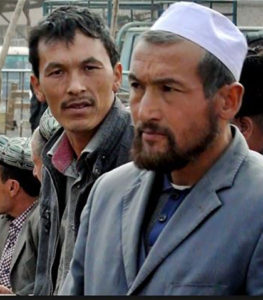The rise of the Chinese refugee
 The number of Chinese nationals applying for refugee status in Australia has risen by more than 300 per cent in just a year, according to new figures from the Department of Home Affairs.
The number of Chinese nationals applying for refugee status in Australia has risen by more than 300 per cent in just a year, according to new figures from the Department of Home Affairs.
Protection visa applications from people arriving from China rose from 2,269 in 2016-17 to 9,315 in 2017-18, the data reveals.
Most are claiming asylum because they are Christians, LGBTI or children born out of wedlock.
But despite the rising numbers of claims, Chinese nationals had among the lowest success rates for protection visas, with the department recognising just 10 per cent of those claims as being genuine
The total number of onshore asylum claims for all nationalities has risen 225 per cent from 8,587 in 2014-15 to 27,931 in 2017-18 with Chinese nationals making up a third of all claims over that period.
The rise in asylum claims by Chinese comes as there has been a large increase in people coming from China generally, especially as international students.
Refugee advocates say that many genuine refugee were arriving from China, including Falun Gong members and persecuted minorities such as the Uyghurs from Xinjiang province, in the country’s west.
Recent media reports have claimed an expansion of internment camps in western China used to detain and indoctrinate large numbers of the region’s Muslim population.
New satellite image research collated by the Australian Strategic Policy Institute (ASPI) think tank, identifies and documents the expansion of 28 detention camps that are part of a massive program of subjugation in the region of Xinjiang.
The research shows that since the start of 2017, the 28 facilities have expanded their footprint by more than two million square metres.
Xinjiang has been the scene of ethnic unrest. At the heart of the conflict is a separatist movement which seeks to establish an independent Uighur homeland called East Turkestan.
The Beijing government has accused local ethnic groups of terrorism and reinforced local security forces, expanding the network of police stations and checkpoints and building an electronic surveillance network.
It is estimated around two million Uighurs and other Muslims have been rounded up and detained in the camps where they are forced to undergo indoctrination and “de-extremification”, human rights groups have claimed.
China initially denied the existence of the camps but, with of a UN review into its human rights record due soon, Chinese officials have launched a propaganda campaign depicting the camps as humane job training centres.












